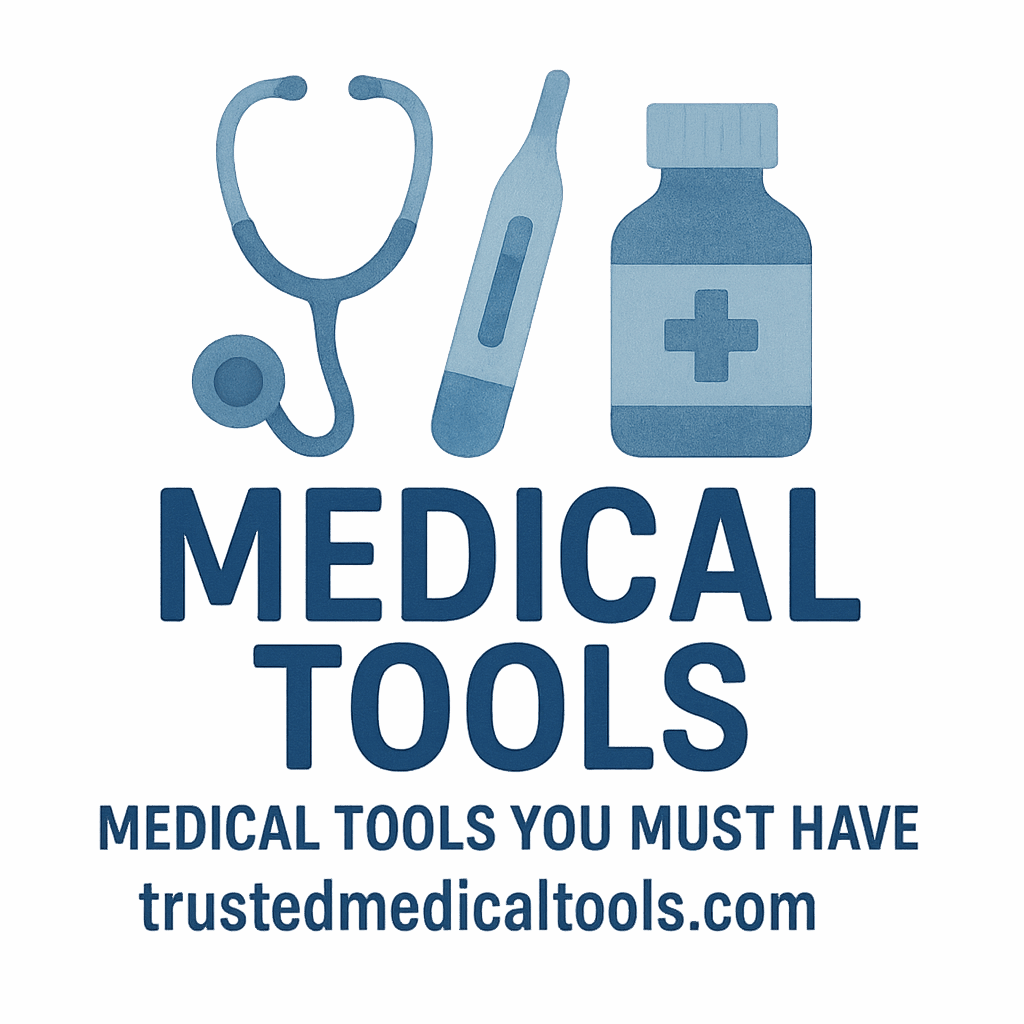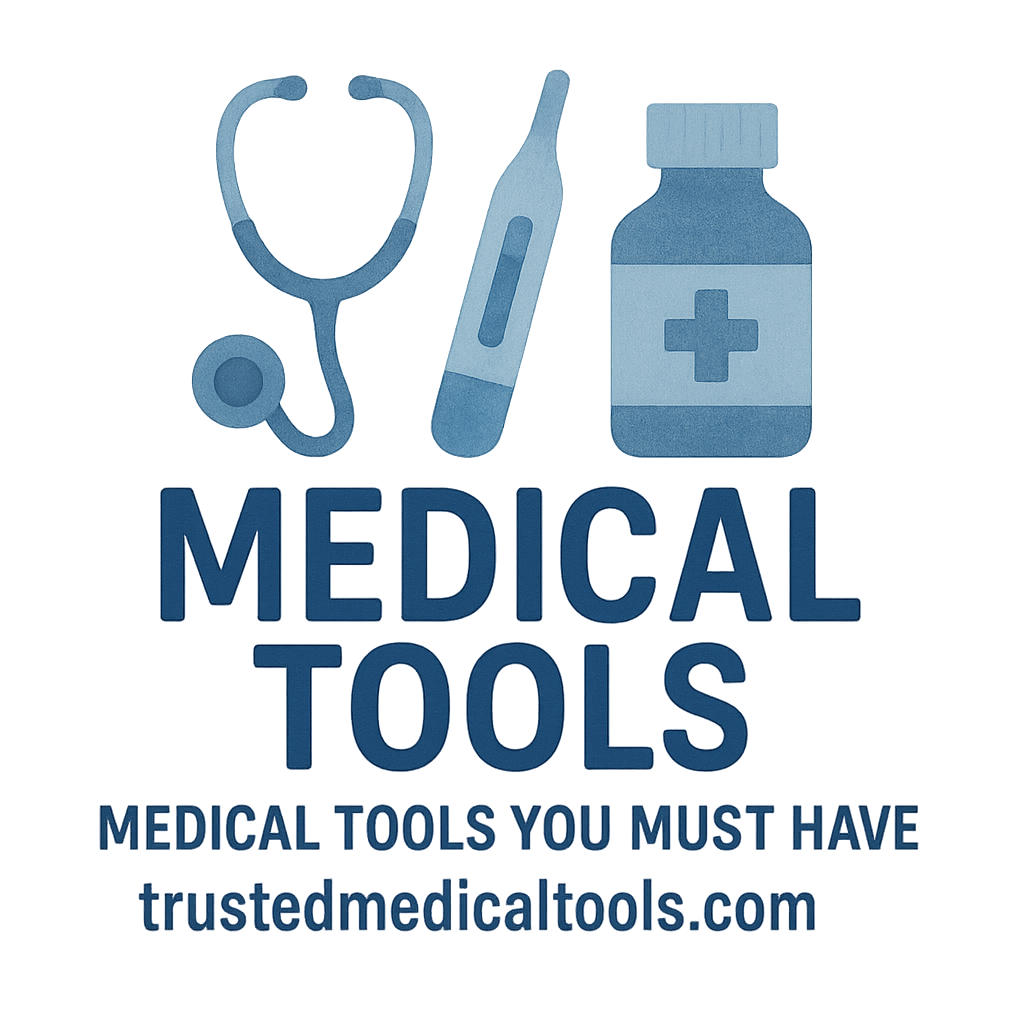Introduction: Why Preparation Matters
Imagine this: someone in your home suddenly feels faint, short of breath, or shows signs of a high fever. You’re scrambling to find something—anything—that could help. Now imagine having exactly what you need right at your fingertips.
Medical emergencies don’t send calendar invites. They strike when least expected, and in those moments, having the right tools can literally save lives. This guide will walk you through seven essential medical tools that you’ll wish you had before a health emergency hits, plus a few bonus tools for extra peace of mind.
Explore more doctor-approved and easy-use tools to build a complete home health toolkit.
1. Digital Thermometer
How It Helps in Emergencies
Fevers can indicate infections, viral illnesses, or more serious conditions. A digital thermometer helps you instantly detect elevated temperatures, giving you critical information when seconds count.
Features to Look For
- Fast reading times (under 10 seconds)
- Flexible tips for comfort
- Memory recall for tracking temperature trends
Recommended Brands
Look for trusted, doctor-recommended options. Infrared forehead thermometers are perfect for kids and quick checks.
Check out our full buying guide for thermometers and more.
2. Pulse Oximeter
What It Measures and Why It’s Crucial
A pulse oximeter measures the oxygen saturation level in your blood. During respiratory illnesses (think COVID-19 or asthma attacks), oxygen levels can drop before you even notice symptoms.
Using It Correctly
Simply clip it to your fingertip, press a button, and in seconds, you’ll see both your heart rate and oxygen level.
Expert Recommendations
Look for models that are doctor-approved and have clear LED displays, especially for elderly users.
You can find these under our monitoring devices section.
3. First Aid Kit
What Your Kit Should Include
- Bandages and gauze
- Antiseptic wipes
- Pain relievers
- Gloves
- Scissors
- Burn ointment
- CPR mask
Explore our first aid essentials for a full checklist.
DIY vs. Pre-Assembled Kits
Pre-assembled kits are great for quick setup. But if you’re someone who likes control over every detail, building your own kit with basic tools and supplementary tools is a smart route.
Keeping It Updated
Check your kit every 6 months. Replace expired medications and restock used items.

4. Blood Pressure Monitor
Early Detection of Serious Conditions
High or low blood pressure can indicate serious health risks like heart attacks, strokes, or dehydration. A blood pressure monitor lets you catch changes early.
Choosing the Right Model
Upper-arm models tend to be more accurate. Look for digital displays and memory storage.
Easy-to-Use Options for Home Use
For seniors or tech-averse users, go for easy-use monitors with one-button operation.
We’ve reviewed several on our monitoring devices page.
5. Glucometer (Blood Sugar Monitor)
Monitoring Chronic Conditions
People with diabetes, or even those on the borderline, benefit hugely from having a glucometer at home. It helps track blood sugar fluctuations and avoid crises.
Important Features to Consider
- Fast results (under 5 seconds)
- No coding required
- Memory for at least 100 readings
When to Use It
Check blood sugar when experiencing dizziness, fatigue, or shakiness. It’s also essential before/after meals for diabetics.
Explore home health care tools designed to monitor chronic conditions.
6. Medical Alert System
For Seniors and Solo Living Adults
Whether it’s a fall or a sudden medical episode, medical alert systems let users call for help with the press of a button.
How These Devices Save Lives
Some systems include fall detection and GPS location tracking. They’re game-changers for seniors or anyone living alone.
Best Picks in the Market
We recommend systems that integrate with smart homes or cell networks. Read our home support recommendations for top-rated models.
7. CPR Face Shield or Mask
When Every Second Counts
Giving CPR without proper protection can expose both parties to risk. A CPR face shield ensures you can act fast—and safely—during a cardiac emergency.
Must-Have for First Responders at Home
If you’re the “health-conscious one” in your family, having a CPR mask in your first aid box is non-negotiable.
Where to Store It
Keep one in your car, your first aid kit, and your go-bag.
Bonus Tools to Consider
Infrared Thermometers
These are super handy for fast, no-contact readings. Especially useful with kids or during flu seasons.
Emergency Contact Organizer
A small but mighty tool: write down your doctor, nearby hospital, and a list of allergies/medications. Stick it on the fridge or store it in your kit.
How to Organize Your Medical Tools
Storage Tips
Use clear bins or labeled drawers. Store in a cool, dry place that’s easy to access.
Creating a Home Health Station
Designate a corner or cabinet in your house as the home essentials zone. Keep tools together and check them quarterly.
You’ll find helpful items in our home gear collection.
Final Thoughts
There’s no time like the present to get prepared. Emergencies don’t announce themselves—and trust us, the tools on this list are the kind you’ll wish you had when time is short.
Whether you’re building your first kit or upgrading your existing one, check out Trusted Medical Tools for wellness tools, mental health gear, and everything in between.
Be proactive, stay ready, and take charge of your family’s health—starting now.
FAQs
1. What’s the most important medical tool to keep at home?
A first aid kit tops the list because it can handle a wide range of minor injuries and issues until professional help arrives.
2. How often should I replace or update my medical tools?
Every 6–12 months. Check battery life, expiration dates, and functionality.
3. Can I rely on phone apps instead of physical devices?
Apps are helpful, but nothing replaces the accuracy of real medical tools during an emergency.
4. Where should I store these tools?
Keep them in a cool, dry, and accessible spot. A centralized location like a hallway cabinet works well.
5. Are these tools kid-friendly?
Yes, especially if you choose easy-use models with clear displays. Just keep out of reach when not in use.
6. Do insurance plans cover these tools?
Some tools like blood pressure monitors or glucometers might be covered. Check with your provider.
7. Can I travel with these tools?
Absolutely! Miniature versions and travel kits make it easy to stay prepared on the go.


